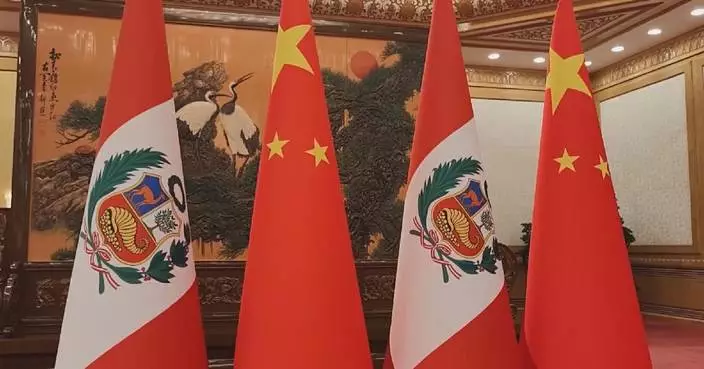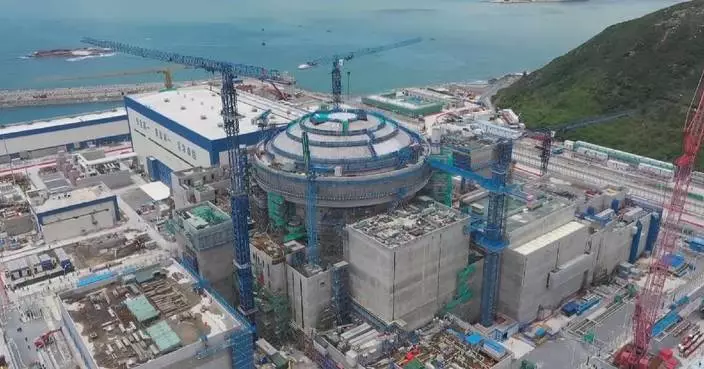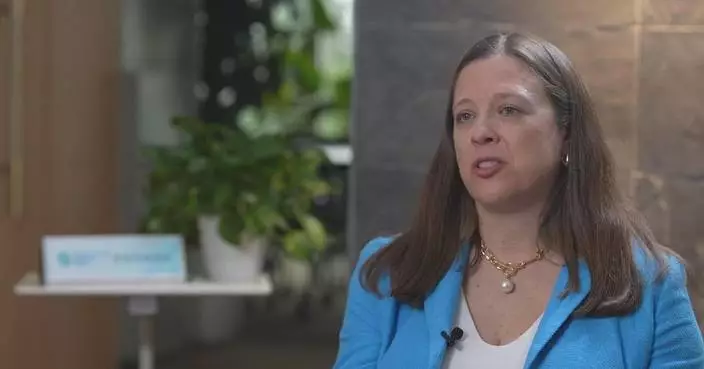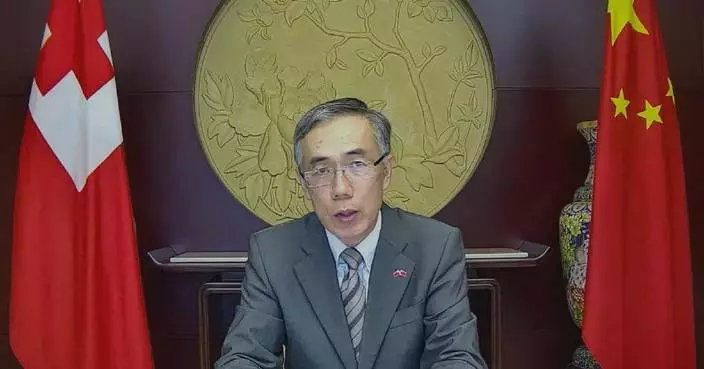Malaysia and China boast huge cooperation potential in the sectors of new energy vehicles (NEVs) and artificial intelligence (AI), said Rafizi Ramli, Malaysian Minister of Economy, in Dalian City, northeast China's Liaoning Province, in an interview on the sidelines of the 2024 Summer Davos, which concluded on Thursday.
He believes that it is now the best time for Chinese NEV makers to expand market in Malaysia.
"If I can talk directly to the EV (electric vehicle) manufacturers in China, I think this is the best time to consider expanding to Malaysia. China has plenty of models in that category. And obviously, China has cost-competitiveness. And I can tell you, we have, I think, the biggest brand in Malaysia now is BYD. It's very popular, extremely popular. So Malaysia intends to see revving up of EV much faster than what we already have now," he said in the interview with China Global Television Network (CGTN) on Tuesday.
Regarding AI, the minister said Chinese AI companies will help his country keep up with the development of the cutting-edge technology.
"When it comes to AI, I know that a lot of the LLMs (large language models) developed by Chinese companies are being trained in data centers, in clouds in Malaysia. So if we continue this and with full government support, we will be able to have a leading edge to make sure that we are not left behind in the AI development. In the case of Malaysia and China, after 50 years of collaboration, there is a sense of mutual honest partnership. It will allow us to step up our own resilience in managing the fast-changing environment that we operate in," he said.
The three-day Summer Davos, formally known as the World Economic Forum's 15th Annual Meeting of the New Champions, gathered more than 1,700 participants across nearly 80 countries and regions to jointly explore new drivers and pathways for global economic growth.
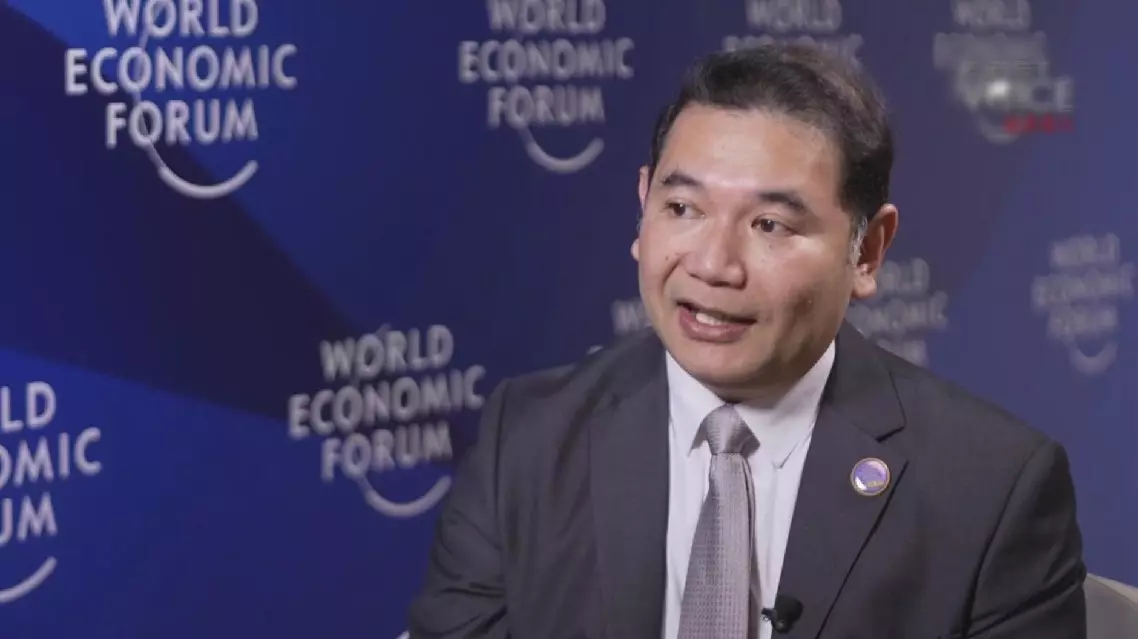
China-Malaysia cooperation on EVs, AI holds great promise: Malaysian economy minister
Active policy measures to boost the economy, the fostering of new quality productive forces and the optimization of measures for the real estate sector will ensure China sustains a robust GDP growth this year, said Dora Liu, deputy CEO for Deloitte China, a global auditing and consulting firm, at the just-concluded Summer Davos forum.
The three-day Summer Davos forum, or the World Economic Forum (WEF)'s 15th Annual Meeting of the New Champions, concluded in Dalian City, northeast China's Liaoning Province, on Thursday.
In an interview with China Global Television Network on the sidelines of the forum, Liu noted that from January to May, the Chinese economy has shown a vigorous growth momentum in manufacturing, consumption and exports as the World Bank has raised the growth estimate for China's economy in 2024 from 4.5 percent to 4.8 percent.
"In the first five months we have seen very strong performance of three sectors. First and foremost, manufacturing, no doubt. Second is service consumption, and third is external demand - you can interpret as exports. From a production side, manufacturing, particularly advanced manufacturing, or high-tech-related manufacturing has achieved a very impressive result," said Liu.
Official data showed that in the first five months, China's industrial output increased 6 percent year-on-year. In May, the output of the high-tech manufacturing sector surged 9.4 percent, 4.4 percentage points faster than the pace of overall industrial output growth.
The data also showed that China's consumption growth picked up pace in May with retail sales expanding 8.6 percent year-on-year, while fixed-asset investment grew 5.6 percent year-on-year in the first five months.
"That indicates we (China) are on the right track of high-quality growth, particularly, the new [quality] productive forces as the top priority of our economic growth. The combination of our measures, the new [quality] productive forces, and the optimization of real estate measures. All in all, I'm very confident that we can achieve more than 5 percent GDP growth in this year," said Liu.
First introduced in 2023, new quality productive forces refer to advanced productivity freed from the traditional economic growth mode and productivity development paths. It features high-tech, high efficiency and high quality.
On May 28, Deloitte hosted the inaugural MNC Future Summit in Shanghai, gathering together over 200 global delegates, including senior executives from renowned multinational companies (MNCs) in China, top industry professionals, and Deloitte's client service lead partners.
The attendees to the summit all agreed that the Chinese economy is too big and too important to ignore, and that despite the complexities, the Chinese market still hold abundant opportunities for global investors, according to Liu.
"The reason behind why we were all so confident of China's economy is exactly as what Premier Li Qiang mentioned and pointed out [at the opening plenary of the Summer Davos forum]. First and foremost, the mega size of our digital economy, the huge amount of user cases and the innovation - pivotal is the power of the innovation hub. Second is the talent pool, and third is China has been keeping advocating the open-door policy and it put words into action," said Liu.
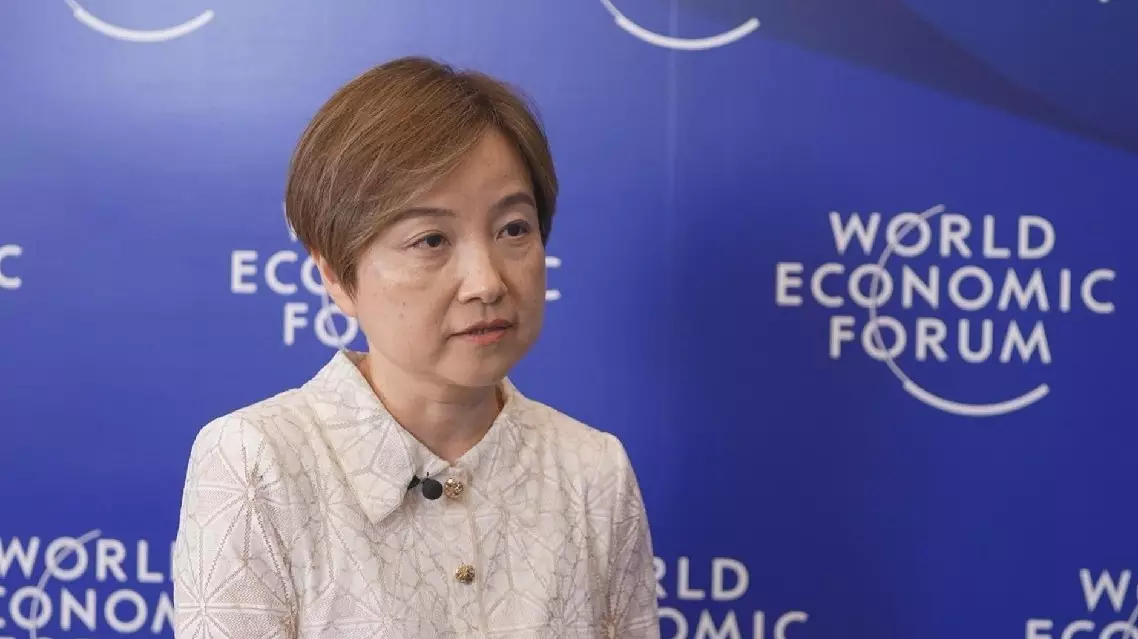
Deloitte deputy CEO confident in China's economic development




